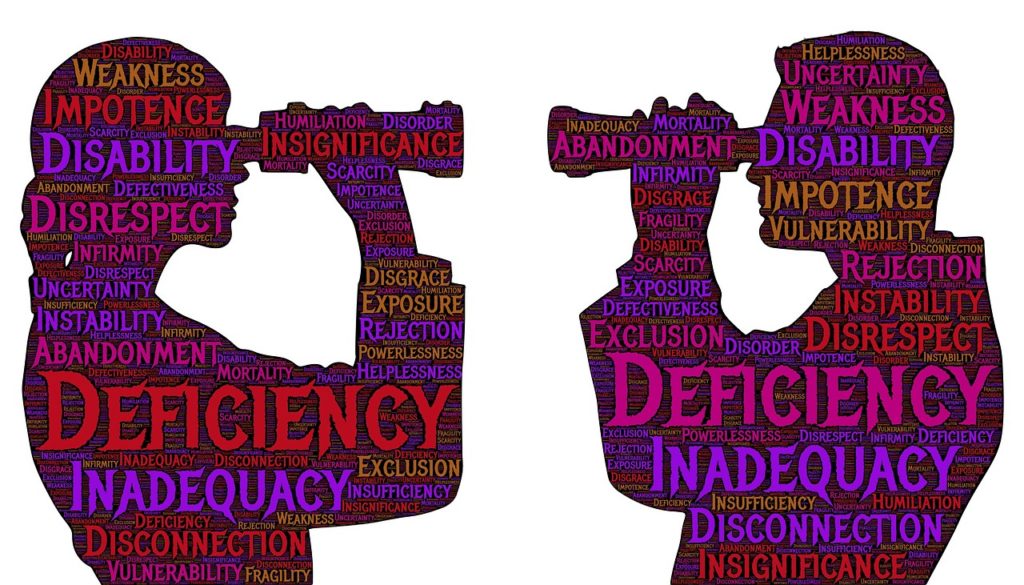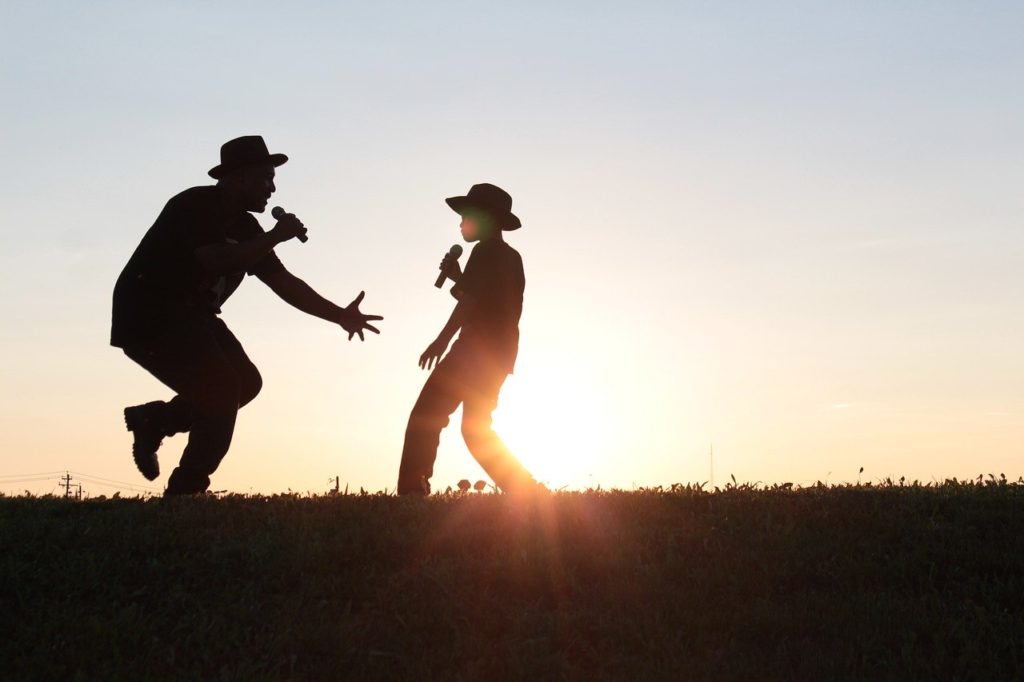EVERYONE
at some point in their lives has experienced the feeling of shame, or at least the
milder little brother of shame: embarrassment. You might have done or said
something ‘stupid’, got in an embarrassing situation, or were acting like an
idiot while you were drunk. The feeling of shame takes over and makes you feel
very small; you feel like you are not good enough, that there is something
wrong with you, or that you are undeserving.
All you want to do is curl up and hide in a corner where no one can see your
‘flaws’.
What is happening here?
You have created this image in your mind of who you are, what you (should) look like, and how you (should) act. Whenever you fail to live up to this image by making what you think is a ‘social mistake’, you feel shame, because you are not living up to who you think you ought to be.
Thus, this painful emotion is a response to failing to live up to the image you have of yourself, and being afraid that people will judge you and shun you for it.
You also have all these ideas in your head about how you want other people to perceive you and you don’t want them to get the ‘wrong’ image of you. Many people thus act like it is the end of the world when others see them doing something crazy, incompetent, or obnoxious.
The truth is that people care a lot less about you than you think they do and many won’t even notice your social mistakes.
All you are doing is beating yourself up because you feel like you have let yourself down.
What makes shame so painful is that you disapprove of WHO YOU ARE. In your mind, you have created this ‘perfect’ image of yourself but in reality, you cannot live up to that. NO ONE is perfect and EVERYONE does or says stupid things. However, you still disapprove of yourself and feel shame when this happens to you because you blindly hold on to that ‘perfect’ image of yourself.
Thus, in essence, shame is the fear of judgement, both from ourselves and others. Furthermore, that leads to the fear that other people will see us in a bad light and won’t like us anymore.
Is the solution to stop caring about what other people think of you?

Should you care what others think of you?
Most of the time the fear of being judged is irrational, but often it is also a valid fear. Everyone has expectations, be it your family, the random person on the street, or society in general. Therefore, it is inevitable that you will be judged.
Thus, when talking about overcoming shame it is often advised to ‘not care what other people think of you’. I think it is a bad idea to blindly follow that advice.
In general, it is not a bad idea to take into account how you are perceived by other people and to consider the feedback you get from people judging you. The key is to approach this in a healthy way; to see that these people are functioning as a mirror for you and keeping you sharp in terms of how you are perceived and what actions you take.
Besides, some conventions and rules are put in place to keep some order and peace within large societies, and other norms are there because they are just part of being a good person. For example, you shouldn’t just take a dump on someone’s front yard because ‘you feel like it’ and ‘don’t give a fuck what others think’.
You should, however, not let what others think of you stand as a barrier to showing what makes you YOU. There shouldn’t be a handbrake on the expression of what makes you unique as an individual, as long as it stays within the limits of decency and morality.
The problem is that shame limits us way too much by making us think that we are flawed when we don’t fit into the status quo. These limiting beliefs only exist in our own minds and people are actually hungry to break loose from the constraints of embarrassment and shame. The beautiful thing is that when you lead by example and fully manage to express yourself freely, other people will get inspired to do the same!
5 steps to break free from shame and achieve social freedom
Step 1: Get real
The first thing is to get real with yourself. Be honest with yourself and let go of that image you have in your mind of how you see yourself and how you think others (should) see you. First of all, you are not perfect and you shouldn’t expect to always behave perfectly. Secondly, whatever you believe about how people perceive you, you are wrong. No one sees you exactly the way you think they see you, so get over yourself and accept that some people will think of you badly.
Let go of these ideas and images and just allow yourself to make ‘mistakes’. None of your loved ones are going to judge you for just being human!
Step 2: Talk about it
The next step, after admitting that you’re not perfect and make mistakes, is to talk about it. We usually are afraid to bring shame to light because then we expose our flaws and people might see how horrible we really are.
However, If we don’t talk about it, shame holds immense power over us.
Talking about it takes away that power and trains us to believe it is okay to have flaws. Own everything you do, and when you experience something embarrassing, share it with your trusted loved ones. You will have a good laugh and they will respect you for your courage to share.
Who knows, you might even inspire them to be more open and courageous themselves!
Step 3: find the courage to express yourself freely
Step 2 is already a form of this, but there are many more ways to express yourself, and shame is often a barrier when it comes to self-expression.
Take dancing for example: most people can’t let themselves completely go on the dancefloor. They say ‘I can’t dance’, ‘I don’t know what to do’, or ‘I don’t want to look silly’.
Again, they are afraid of being judged and not living up to their idea of what dancing is supposed to look like. Therefore, it is easier to not even try dancing than to risk the chance of ‘failure’.
However, self-expression through things like dance, art, music, or even just in ordinary social interactions is a crucial way to manifest what makes you unique as an individual. Don’t let irrational fear stop you from doing this!
Take up dance lessons, art lessons, improv drama classes. Do things that will train you to feel comfortable expressing yourself.

I did this too.
Dancing used to be one of my biggest insecurities. When at a club or bar, I just didn’t feel comfortable and was completely immobilized. I had no idea how to move my body (or so I thought). I hated dancing.
Then at one point I decided to face my fears and started taking dance lessons. First, a beginner’s ballroom dancing course, and later I started attending crazy things like ecstatic dance events. Now I LOVE dancing; it’s one of my favourite things to do.
Even if you think you won’t like doing something, often it is just your fear and shame speaking, so just try it!
Speaking of which…
Step 4: Try new things
One of the problems with shame is that we have this set image of ourselves that we need to live up to. Here’s the deal: who we are is something fluid. We are constantly changing and nothing about ourselves is set in stone.
One of the best ways to remind yourself of this is to constantly keep doing things you have never done before.
I used to have this challenge with a friend to do something we had never done before every single week. This can be anything: eat something you have never eaten before, visit a place you have never been before, or do an activity you have never done before.
In this way, you keep your mind open to new things and you realise that life is a process of constantly reinventing yourself.
So, I invite you to do that same challenge: every single week, do something you have never done before!
Step 5: Practice with social freedom exercises
One way to strengthen yourself against shame is to purposefully expose yourself to embarrassing situations and become comfortable with it. This might sound extreme, but it will give you unimaginable freedom. This is even a thing in cognitive behavioural psychology, in which it is called ‘social mishap exposure’.
The idea is to engage in activities that will lie outside of the social norm and will make you feel some embarrassment. By doing this regularly, you will learn to ease into the feeling and it will lose its control over you. Furthermore, you will realise that people actually don’t pay as much attention and care about you as much as you might believe they do. Heck, some people won’t even notice you at all.
Here are a few examples of social freedom exercises:
- For a couple of minutes, walk backwards slowly in a crowded street
- In a crowded store, wear your shirt inside out and backwards, or buttoned incorrectly. Oh, and don’t avoid social interaction, try to make eye contact with people!
- Ask people if they can help you tie your shoelaces
- Lie down on the floor in a crowded area
- Dance or sing in a crowded street
- Give a random person a high five
You get the idea.
Have fun and get creative with it, but stay within the limits of decency and morality!




0 reacties